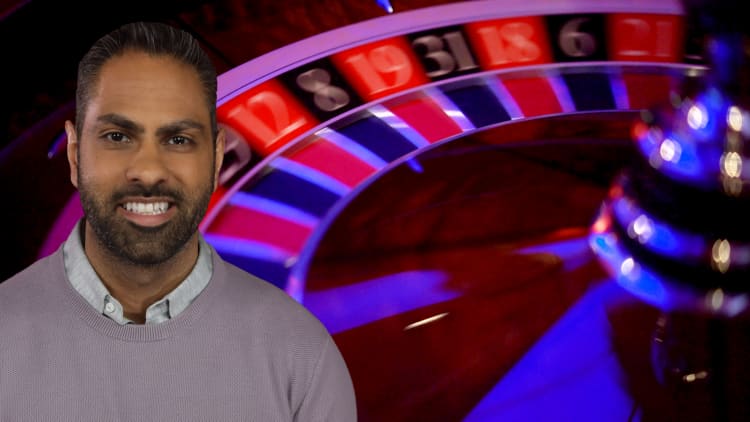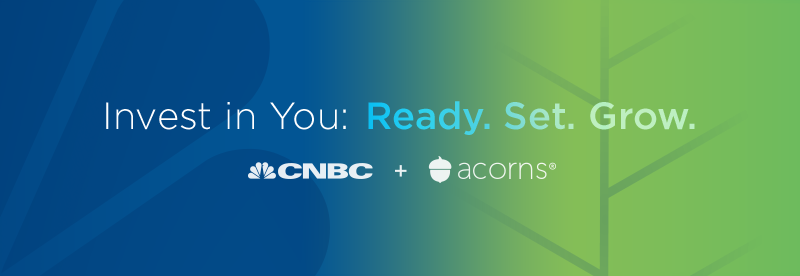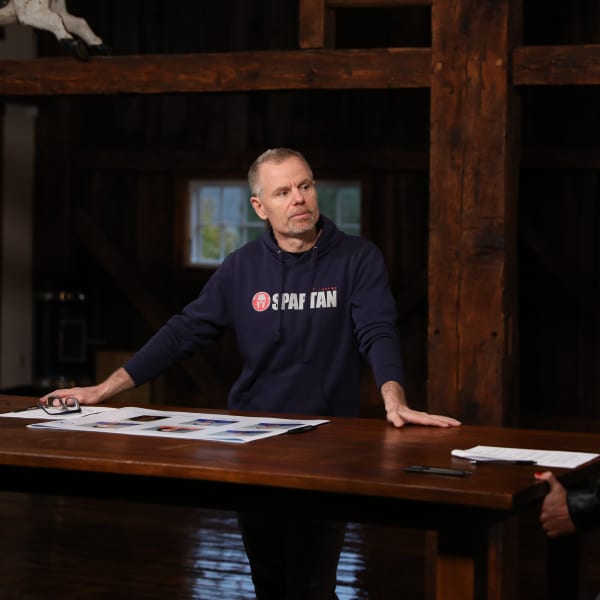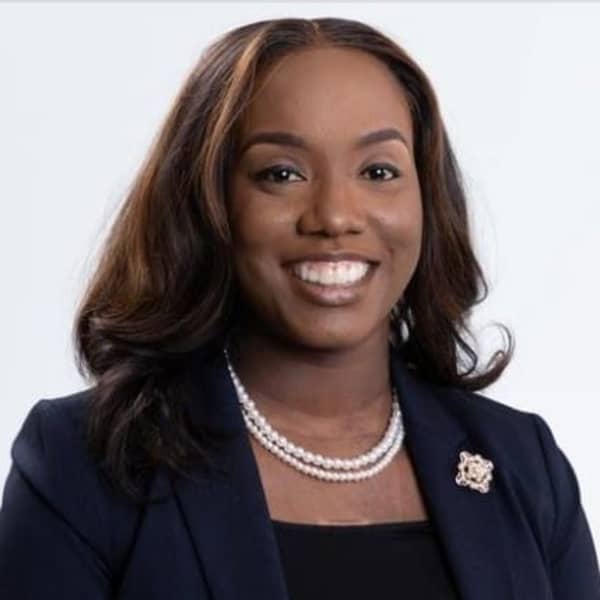How many times have you been out with friends and when the topic of finances comes up, someone jumps in and says 'I'm bad with money?"
Sound familiar? Maybe you've even been guilty of saying or thinking similar things yourself. But if you want to actually get better at managing your finances, it's time to stop saying you're bad with money, personal finance coach Ramit Sethi tells CNBC Make It.
"I want to challenge you to stop talking like that," Sethi says. "If you describe yourself as 'bad with money,' guess what— you're probably going to be bad with money."
Instead, Sethi says focus on what you can control and empower yourself to go on the offensive when it comes to your finances. Now that doesn't mean you need to have every single aspect of your money perfectly organized or that you need to understand complex financial theories on day one.
It does means setting aside your insecurities and jumping in. "The single most important factor to getting rich is getting started, not being the smartest person in the room," Sethi writes in the updated version of his book, "I Will Teach You to be Rich."
Here are three simple ways you can get much better about money starting this week.
1. Flip the script when describing your financial skills
The first step in taking control of your finances is to "change the language around how you describe yourself," Sethi says. Instead of saying "I'm bad with money," you should say: "I haven't yet learned the skills of managing my money, but I'm going to," he recommends.
That's a more empowering way to think and talk about your money, he says.
For many people, there's also a lingering question beneath the "bad with money" statement: Is is it too late? Is it too late for me to get good with money? Is it too late for me to save and invest?
"No, it's not too late," Sethi says. "To be really candid with you, it probably would have been better if you had maxed out [your 401(k) and your savings] when you were 22. But that's OK, we all start at different parts in life," he says.
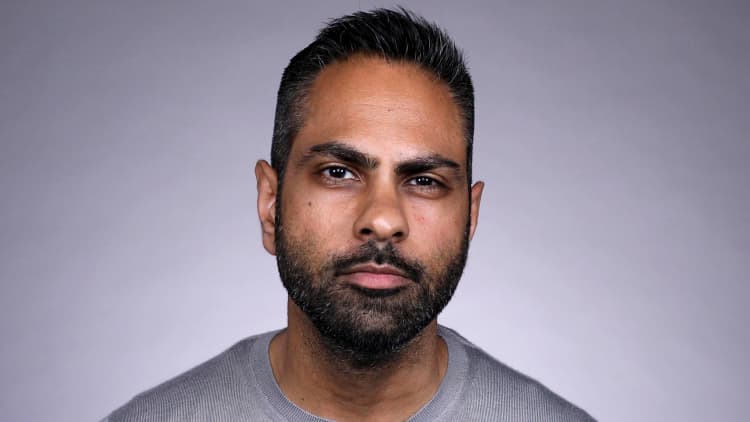
2. Create an action plan
An action plan doesn't need to be super complicated, Sethi says. Don't get hung up on spreadsheets and budgeting apps.
First, you need to figure out where your money is going. Ask yourself, of the last paycheck I got, how did I generally spend it? "Don't beat yourself up" over how you spent it, Sethi says, the exercise is simply about figuring out your habits.
Then ask yourself: Where do I want my money to go? Not sure? Sethi recommends saving 10% of your money every month and investing 10% of your money every month. "If you do just those two things the rest of it is probably going to be pretty good," he adds.
Now if you're sitting there thinking 'there's no way I can save 10%,' Sethi has one answer: You probably can. On the investing side of things, for example, make sure you're taking advantage of any 401(k) match that your employer may offer. If you have access to an employer's match, then you don't have to save the full 10% yourself.
When it comes to savings, Sethi recommends automating the process. Set up regular transfers from your checking account into a savings account so you don't even have to think about it and you're not tempted to spend that money.
3. Face your debt head-on
For many people, the stumbling block to getting their finances in order is debt. But you can overcome it, Sethi says. People are missing "the forest for the trees" when they say things like: "I really shouldn't have spent that much on brunch," he adds.
"Brunch is not the problem, my friend," Sethi says. Instead, let's talk about the $30,000 student loan debt you may have, or the persistent balance you carry on your credit cards. But not many people want to face the full extent of their debt.
Challenge yourself to do just that. "Actually write down exactly how much debt you owe," he says. "Don't laugh — 90% of the people who write me with debt problems don't know how much they owe."
It's intimidating. It's nerve-wracking. But it's the first step toward moving out of debt. "I want you to know exactly how much you owe, how much you're paying every month and what is the exact month that your debt will be paid off," Sethi says.
From there, figure out the maximum you can put toward that debt, especially if it has a high interest rate, such as credit card debt or private student loans. For a lot of people who have $20,000 or $30,000 or more of debt, Sethi says adding an extra $50 a month can shave off the payback period by years.
"It's not too late," Sethi says. You can change the way you talk about money and the way you think about money. And, most importantly, you can create an action plan this week to change your behavior with money.
"Take control, you can do it," Sethi says.
Check out Don't worry about getting a perfect credit score—This score is all you need via Grow with Acorns+CNBC.
Like this story? Subscribe to CNBC Make It on YouTube!
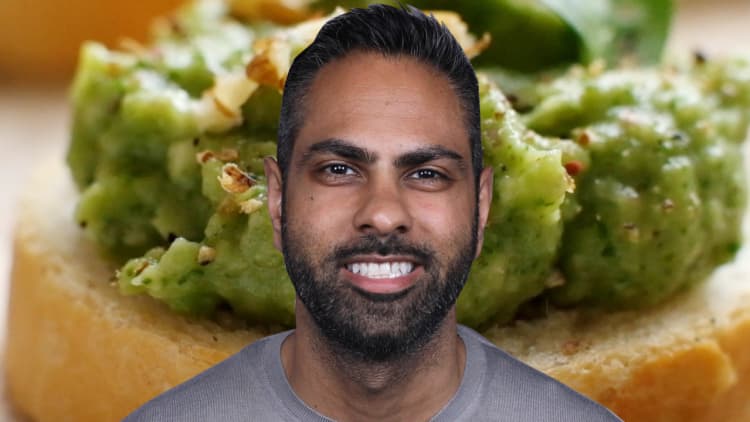
Disclosure: NBCUniversal and Comcast Ventures are investors in Acorns.




